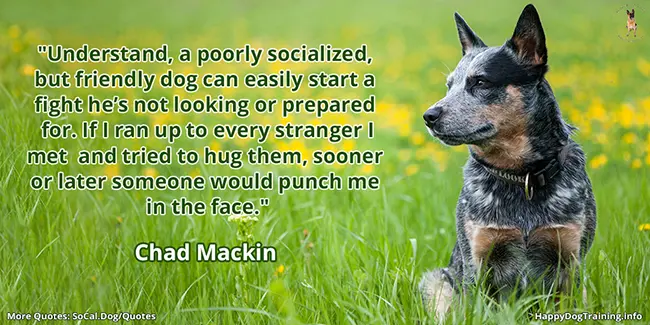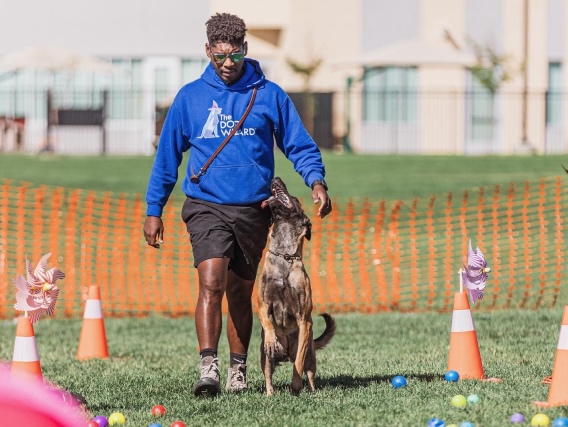The Ultimate Guide to Dog Training Charlotte: Techniques for Success
The Ultimate Guide to Dog Training Charlotte: Techniques for Success
Blog Article
Unlock Your Dog's Possible: Proven Pet Training Methods for Success
Effective dog training is a nuanced procedure that rests on comprehending canine actions and using clinically backed techniques. dog training charlotte. By integrating favorable support, developing clear commands, and prioritizing socialization, pet dog owners can grow a productive relationship with their pets. Difficulties frequently occur that need tailored services and a patient approach. Exploring these proven methods discloses not just the capacity for behavioral renovation but additionally the deeper bond that can be created between owner and pet. What vital techniques must be taken into consideration to absolutely open your canine's potential?
Comprehending Pet Behavior
Recognizing dog habits is vital for efficient training and promoting a positive partnership between pet dogs and their proprietors. A detailed grasp of canine body language, vocalizations, and social communications is vital for acknowledging their demands and feelings. Dogs communicate largely with non-verbal signs; for instance, a wagging tail may show exhilaration, while pinned ears can indicate worry or entry.

Furthermore, ecological aspects play a significant function fit a dog's behavior. Adjustments in routine, brand-new environments, or the visibility of strange individuals can bring about stress and anxiety or anxiety in pet dogs. Acknowledging these triggers enables proprietors to mitigate unfavorable reactions and develop suitable training techniques.
Inevitably, a deep understanding of dog behavior lays the structure for effective training techniques, enhancing both habits and the general bond in between the dog and its proprietor. Dog training. This understanding is important for fostering a well-adjusted, pleased canine friend
Favorable Support Methods
Effective training relies greatly on positive support methods, which have actually been revealed to generate substantial lead to shaping desired actions in canines. This strategy involves rewarding a pet for exhibiting details habits, thereby raising the chance that these habits will be repeated. Benefits can take different forms, consisting of treats, praise, toys, or playtime, depending upon what motivates the individual pet.

It is important to progressively terminate incentives as the pet dog finds out the actions, transitioning to recurring reinforcement. This strategy maintains the actions gradually while stopping dependence on constant benefits. By concentrating on positive reinforcement, instructors can grow a trusting partnership with their pet dogs, advertising a healthy and balanced and participating training environment that boosts general obedience and efficiency.
Developing Regular Commands
An essential aspect of successful pet dog training is the establishment of consistent commands. Uniformity in commands is critical for reliable communication in between the instructor and the canine. When commands are uniform, canines learn to associate particular words with preferred behaviors, which speeds up the training procedure and improves understanding.
To establish regular commands, it is essential that all relative use the very same terms and motions. If one individual uses "sit" while another claims "rest down," it can produce complication for the canine. Select clear, distinct words for commands and make certain everybody associated with the dog's training complies with these selections.
Additionally, repeating is essential. Reinforce commands via regular method, guaranteeing that the pet dog obtains enough opportunities to react correctly. When a canine successfully follows a command, prompt positive reinforcement needs to adhere to. This might be in the kind of treats, appreciation, or playtime, strengthening the link in between the action and the command.
Last but not least, be person. Developing constant commands takes time and effort. With commitment and clarity, you will certainly aid your canine develop a strong understanding of assumptions, inevitably causing a mannerly buddy.
Socialization and Exposure
Interacting socially a pet dog is crucial for promoting a positive and well-adjusted friend. This procedure involves exposing your canine to a variety of settings, individuals, and other animals to create their social skills and flexibility. Early socialization, preferably in between the ages of 3 to fourteen weeks, is critical, as it lays the groundwork for a canine's future actions.
During socializing, purpose to offer favorable experiences in various settings, such as parks, active roads, and homes with other family pets. Present your canine to different stimuli, consisting of noises, views, and smells, making certain that each experience is satisfying. This exposure helps minimize anxiety and stress and anxiety, leading the way for an extra durable pet dog.
Involving in controlled team play sessions with various other pet description dogs can likewise boost social abilities, educating your animal proper interactions and limits. Always check your canine's convenience degree during these experiences, gradually boosting direct exposure as their confidence expands. Keep in mind, the goal is to develop an all-around animal that grows in varied scenarios, advertising an unified connection with both people and other pets. Focusing on socialization will considerably contribute to your canine's overall happiness and actions throughout their life.
Overcoming Common Educating Challenges

Dogs may battle to focus in unknown or active settings. Progressively desensitize your pet dog to interruptions by beginning training in a silent atmosphere and slowly introducing more stimulations as they become efficient.
Additionally, behavior issues like jumping or too much barking can come to be frustrating. Address these by teaching alternative actions, such as sitting calmly when click for more greeting guests. Consistency and patience are vital; enhance preferred habits consistently and prevent abuse, which can lead to Recommended Reading complication.
Last but not least, recognize that each pet dog is unique, and training timelines might differ. Dressmaker your method to your dog's individual requirements, and look for specialist guidance if required. With perseverance and the ideal methods, conquering these difficulties can bring about a well-trained, delighted canine companion.
Final Thought
In final thought, unlocking a dog's prospective demands a thorough strategy that incorporates an understanding of canine behavior, the application of positive reinforcement methods, and the establishment of regular commands. Early socialization and exposure to varied atmospheres further boost a canine's adaptability and self-confidence. By attending to typical training challenges with tailored methods and patience, a harmonious and cooperative connection between pet and trainer can be fostered, ultimately causing a well-behaved companion capable of thriving in various circumstances.
Reliable pet training is a nuanced procedure that hinges on comprehending canine behavior and employing medically backed methods.Understanding pet habits is important for efficient training and fostering a positive relationship in between canines and their proprietors.Efficient training depends greatly on favorable support techniques, which have been shown to produce substantial results in shaping wanted behaviors in pets. When commands are consistent, pet dogs find out to link details words with wanted habits, which increases the training procedure and improves understanding.
In verdict, unlocking a pet's potential necessitates a detailed technique that incorporates an understanding of canine actions, the application of positive support strategies, and the establishment of regular commands.
Report this page